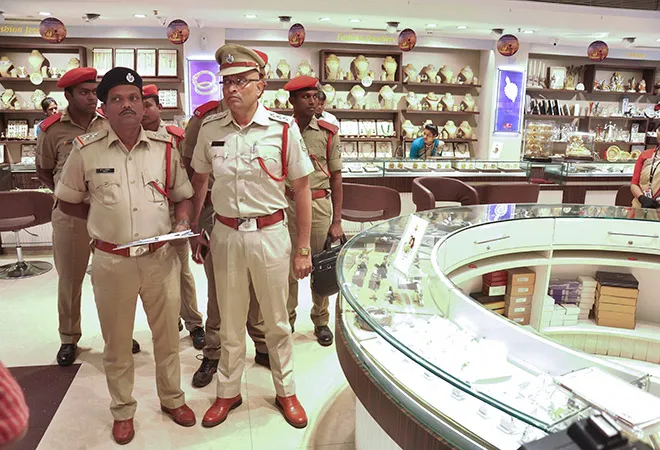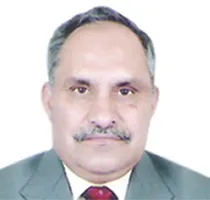For sadly esoteric and unfathomable reasons, our nation seems to have been afflicted with an acute case of a highly malignant and virtually incurable disease, ‘viral whataboutitis.’ Unfortunately, but as was to be expected, it is the political class that seems to have been the most impacted, thereby leaving the average discerning and literate citizen in a state of complete confusion and paralysis.
Of course, you may have guessed that I am referring to the Nirav Modi banking scandal in which one-third of the paid up capital of the second largest public-sector bank (PSB), the Punjab National Bank (PNB), has reportedly been wiped out, supposedly with the active connivance of a low ranking officer and his even lower ranking clerk. You would of course be excused for wondering as to what the rest of the senior and top management do!
The funny thing is that no clear facts and figures as to the exact size of the scandal have been disclosed by the government. After all, if the second largest bank issued ₹11,400 crore worth of Letters of Undertaking (LoUs) without any collateral, how many LoUs must the largest PSB, the State Bank of India, have issued in a similar manner? Yet, we are instead exposed to the unsightly cat-fight between the government and the opposition as to who should bear responsibility for this mess. We find ourselves embroiled in with every argument inconclusively ending with the trite phrase “but what about…”
At the end of the day not only are we no wiser but we also no longer know whom or what to believe, though of course, the reality, that the citizenry will once again pay for the combined acts of commission and omission that have occurred, is a foregone conclusion and not lost on us.
So, that brings me to a simple question: How many lakhs does an individual need to steal before we charge him with treason or is that theft doesn’t add up to treason? Let’s not forget we’ve just recently had two mid-level officers of the defence forces being picked up for having allegedly leaked classified material to a foreign intelligence agency. They were supposedly “honey trapped” on social media, which for one clearly tells us that if they had time to indulge in social media, it is unlikely that they were holding any appointment of consequence. If that be so, the military secrets that they may have been privy to and intentionally or unwittingly leaked, would hardly have been of the sort that would have put our nation at risk.
Yet, we can be rest assured that this government, like earlier ones facing similar cases, will not hesitate to throw everything, including the kitchen sink, against them. After all treason is a heinous offence and traitors must be held accountable. In all likelihood, they will find themselves behind bars, cashiered from Service without pension, if found guilty. Don’t get me wrong, my heart doesn’t bleed for them and they must be held to account, if they have done wrong, but the question that arises is where is the justice in this? Are those who willfully pilfer vast sums of our nation’s wealth, cause untold damage to our banking system, subvert our regulatory mechanism and destroy the credibility of the nation not traitors? Are they not working for our enemies? Why should they then be treated any differently from those who sell our military secrets? If that be so, then every individual who has assisted them by his actions, or lack thereof, must be treated as an enemy of the state. All of them must be held accountable for their acts of omission and commission and be subjected to the harshest punishment possible, regardless of where they rank on the food chain.
This cleansing of the Augean stables must start at the very top. Finance Minister Arun Jaitley and his band of incompetent bureaucrats, including those whose job was to catch any wrongdoing, must be the first to go, as must the Governor of the Reserve Bank of India (RBI) and those on his team specifically responsible for supervision of banking operations. That is what political morality demands at the very least. It goes without saying that the managing directors and board members of the affected banks must be held accountable for negligence and be criminally liable for the actions of their staff. The fiction that the scandal happened over the years without the knowledge or approval of the top management will just not wash.
It is morally and ethically reprehensible that these very individuals who have failed us so badly have now been given the onerous task of pinpointing what went wrong and who should be held accountable. It doesn’t require one to be an Einstein to conclude that they will be less than truthful to what was required of them. Clearly, this is Prime Minister Modi’s time of reckoning, and all his years of rhetoric about corruption will remain just that, if he continues to behave as his predecessor did when the United Progressive Alliance (UPA) was riven by scandal.
The truth is it can no longer be politics or business as usual. The string of financial fraud and chicanery that we have faced over the years and decades is, in many ways, akin to the series of school shootings that have afflicted the United States over the past few decades because in both of these tragedies, it is the innocent who suffer the most. We have a choice to make, we can either complain and continue to sit on our hands till the next scandal hits us, or, like the students of the latest school shooting in Florida, decisively stand together to force legislators to bring about the change that we wish to see. For starters, let’s make sure that public sector institutions can no longer be the private entitlement of politicians.
This commentary originally appeared in The Pioneer.
The views expressed above belong to the author(s). ORF research and analyses now available on Telegram! Click here to access our curated content — blogs, longforms and interviews.




 PREV
PREV


